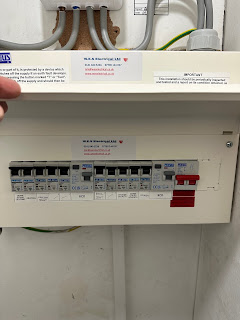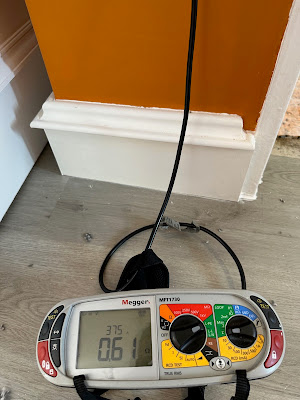 |
| WES Electrical EICR |
Understanding EICR Testing in Glasgow: A Focus on Cardonald and Mosspark
Electrical Installation Condition Reports (EICR) play a vital role in ensuring the safety and functionality of electrical systems in residential and commercial properties. In areas like Cardonald and Mosspark, Glasgow, regular EICR testing is not only a legal requirement for landlords but also an essential practice for homeowners who prioritize safety and energy efficiency. This blog covers the importance of EICR testing in these areas, what to expect from the process, and why it’s critical to comply with regulations.
What is an EICR in Glasgow?
An EICR is a thorough assessment of a property’s electrical system, identifying any potential issues that could pose a risk to safety. It inspects the condition of wiring, circuits, and other components, ensuring they meet current standards. The report categorizes any faults found, ranging from immediate hazards to recommendations for future improvements.
Why EICR Testing is Crucial in Cardonald and Mosspark
Legal Compliance for Landlords: In Scotland, landlords are legally required to provide an EICR every five years or when a new tenant moves in. This ensures that rented properties meet electrical safety standards and can prevent hazards such as electrical fires. Failing to comply can lead to heavy fines and endanger tenant safety(
)().Safety for Homeowners: Homeowners in Cardonald and Mosspark should also consider EICR testing to maintain a safe living environment. Electrical systems degrade over time, and an EICR can detect faults that could lead to accidents or inefficiencies.
Energy Efficiency: An EICR doesn’t just identify safety issues; it can also highlight areas where energy efficiency can be improved. For example, older wiring or systems may consume more energy, leading to higher bills. By upgrading to modern standards, property owners can save money in the long run(
).
What to Expect During an EICR Shawlands Test
An EICR test in Glasgow typically involves:
- A detailed inspection of the property’s electrical installation, including wiring, outlets, fuse boards, and more.
- Testing to identify any potential issues like deterioration, wear and tear, or faulty installations.
- A report categorizing issues as "Code 1" (immediate danger), "Code 2" (potential hazard), or "Code 3" (recommendations for improvement).
The electrician conducting the test will provide a report outlining any corrective actions required, and landlords are legally obliged to address any dangerous faults immediately(
EICR Testing in Cardonald and Mosspark: Local Expertise
Cardonald and Mosspark are home to a variety of property types, from older homes to newer developments, all of which require regular electrical checks. Local electricians are familiar with the types of buildings in these areas and can offer tailored EICR services, ensuring your property remains compliant with the latest regulations. Companies in the Glasgow area often bundle EICR testing with other necessary services, such as PAT testing, making the process more streamlined for landlords(
Conclusion
Whether you’re a landlord or a homeowner, keeping your property’s electrical system in good condition is essential. EICR testing in Cardonald and Mosspark offers peace of mind, ensuring that your property is safe and compliant with Scottish law. Don’t wait until there’s an issue—schedule an EICR test today and protect both your property and its occupants.
For more information or to book an EICR assessment, contact a certified local electrician in the Glasgow area who specializes in EICR testing.








